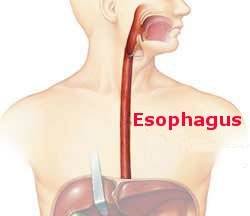Cancer of the esophagus. All cancers are awful but this one in particular. Untreated it’s quickly lethal. Since retirement I’ve dwelt on this surgical challenge as little as possible; however, my attention was drawn back by a recent letter from someone reading my blogs. He had his esophagus removed by another surgeon a few years ago and was doing well with no sign of recurrence.
How things change. During my residency years and for some time afterwards the focus of medical oncologists, gastroenterologists, and thoracic surgeons like me caring for patients with this malignancy was on palliation. Maximizing the quality of life, and perhaps prolonging it a while, were the results we hoped for. Cure was assumed to be unlikely and a happy result of chance. The scenario is much improved now.
Some of the advance is due to a change in the biology of esophageal cancer. Whereas previously most were squamous cancers (under the microscope the cells resembled skin cells) now most are adenocarcinomas (their cells resemble cells of glands) and they are more treatable. Much of the improved results of treatment are due to other factors. One is the frequent use of multimodality programs so that patients receive combinations of chemotherapy, immunotherapy, radiation and surgery. And the operations performed today differ from the past. Most surgeons are more aggressive now in removing surrounding tissue containing lymph nodes. Not all patients are candidates for this potentially curative approach if their cancer is too advanced or they are not fit enough for this combination of therapies; however, as for the correspondent I mentioned, cure is much more likely in the current era. I credit my mentor and teacher David Skinner with setting the thoracic surgical community on the path to today’s world.


